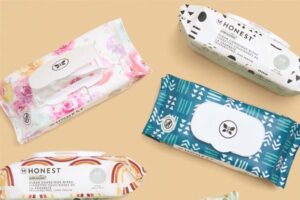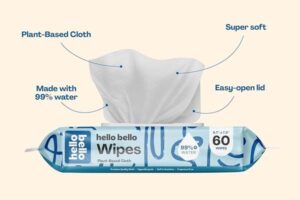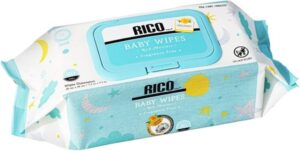
Are you worried about damaging your beautiful hardwood floors? Using the wrong cleaning product can lead to costly repairs or dull finishes. Let's find out if Swiffer Wet Wipes1 are a safe choice for your wood floors.
Generally, you can use Swiffer Wet Wipes on sealed hardwood floors. But, it's very important to check the specific Swiffer product label first. Also, always confirm your floor manufacturer's cleaning guidelines to prevent damage.
Using cleaning products like Swiffer Wet Wipes on hardwood requires some care. The main concern is moisture. Hardwood floors, even sealed ones, don't like too much liquid. Water can seep into seams or scratches, causing swelling or warping over time. Also, the cleaning solution itself matters. Some chemicals might be too harsh for certain wood finishes, potentially stripping the protective layer or leaving a dull residue. It's always best to know exactly what you're putting on your valuable flooring. Always check the Swiffer packaging for wood compatibility.
So, the key takeaway is caution. While Swiffer often markets its wet cloths for multiple surfaces including sealed wood, "sealed" is the critical word. If your floor has gaps, deep scratches, or a worn finish, moisture can get in. Some Swiffer variations might contain ingredients that could build up or react negatively with specific floor finishes over time. Always test in a hidden spot first if you are unsure. Look for any dulling, stickiness, or discoloration after it dries.
What Makes a Floor Wipe Safe for Hardwood?

Choosing the right wipe protects your hardwood investment. But what exactly should you look for in a "hardwood safe" wipe? Let's break it down.
A safe hardwood floor wipe typically uses a pH-neutral formula2 with minimal moisture. It should contain gentle cleaning agents that lift dirt without harming the finish or leaving streaks or dulling residue. Always verify compatibility.
Why pH Level is Important
Hardwood floor finishes are sensitive. Cleaners that are too acidic (low pH) or too alkaline (high pH) can slowly etch or dull the protective layer.
- Acidic Cleaners: Can sometimes damage certain finishes or grout over time. Think vinegar (though highly diluted is sometimes suggested, it carries risks).
- Alkaline Cleaners: Products like ammonia-based cleaners can strip wax finishes and dull polyurethane.
A neutral pH (around 7) is closest to water and is the gentlest option for regular cleaning, preserving the integrity of the floor's seal.
The Moisture Factor: Sealed vs. Unsealed
This is maybe the biggest factor.
- Sealed Floors: Have a protective top coat (like polyurethane, urethane, or polyacrylic). This layer provides resistance against water spots and stains. Wipes with minimal moisture are generally okay here because the liquid sits on the surface briefly before evaporating.
- Unsealed/Oiled/Waxed Floors: These floors absorb liquids quickly. Using any wet wipe, including Swiffer, is usually not recommended. Water can penetrate the wood, causing staining, swelling, or warping. These floors need specific care, often involving buffing or specialized oil/wax products.
Key Ingredients: What to Look For and Avoid
The cleaning solution in the wipe matters a lot.
| Ingredient Type | Look For | Avoid | Why |
|---|---|---|---|
| Solvents | Isopropyl Alcohol (in low concentration) | High concentrations of alcohol, harsh solvents (e.g., acetone) | High alcohol can dry out wood; harsh solvents strip finishes. |
| Surfactants | Mild, non-ionic surfactants | Strong detergents, soap-based cleaners | Gentle lifting of dirt is needed; soaps can leave residue that attracts more dirt and dulls. |
| Acidity/Alkalinity | pH-neutral formulas (around 7) | Vinegar, ammonia, bleach, strong acidic/alkaline chemicals | Protects the floor finish from etching or stripping. |
| Additives | Minimal, proven safe ingredients | Oils (like orange oil, pine oil), waxes, acrylics, silicone | Can build up, create slippery surfaces, attract dirt, or interfere with future recoating. |
| Moisture Level | "Damp" not "Soaked" wipe characteristic | Excessively wet wipes | Minimizes risk of water seeping into seams or unsealed areas. |
Residue Concerns
Some wipes leave behind a film. This can make floors look dull or streaky. Worse, residue can sometimes attract more dirt, making floors get dirty faster. It can also build up over time, requiring intensive stripping later. A good hardwood wipe cleans effectively without leaving anything behind.
Are There Better Alternatives to Swiffer for Hardwood Floors?

Swiffer wipes are convenient, no doubt. But are they always the best choice for keeping your hardwood floors in top condition? Let's explore some alternatives.
Yes, several excellent alternatives exist. Microfiber mops paired with a pH-neutral hardwood cleaner spray offer more control. Steam mops (used carefully) can sanitize. And specialized hardwood floor wipes3 provide tailored formulas.
Exploring the Alternatives
Each alternative has its own pros and cons when it comes to hardwood care.
1. Microfiber Mops + Hardwood Cleaner Spray
- Pros:
- Control: You control exactly how much cleaner is sprayed onto the floor or mop pad, minimizing moisture.
- Reusable: Microfiber pads are washable and reusable, making them eco-friendly and cost-effective long-term.
- Effective: Microfiber traps dirt and dust effectively.
- Specific Cleaners: You can use a cleaner specifically designed for hardwood with a balanced pH.
- Cons:
- More Effort: Requires spraying and mopping, slightly more work than a pre-moistened wipe.
- Initial Cost: Mop system and cleaner might cost more upfront than a pack of wipes.
2. Steam Mops
- Pros:
- Sanitizing: Uses heat to kill bacteria without chemicals.
- Cons:
- High Risk: The combination of heat and moisture can severely damage many hardwood floors and finishes, potentially voiding warranties.
- Not Universally Recommended: Most flooring manufacturers advise against using steam mops on hardwood. Use only if your specific flooring manufacturer explicitly approves it, and even then, use it sparingly and quickly.
3. Hardwood-Specific Wipes
- Pros:
- Formulated for Wood: Designed with pH-neutral cleaners and minimal moisture content specifically for sealed hardwood.
- Convenience: Offers the same grab-and-go ease as Swiffer.
- Cons:
- Cost: Can be more expensive than generic multi-surface wipes.
- Availability: Might not be as widely available as major brands like Swiffer.
4. Soft Bristle Broom + Vacuum (with hard floor setting)
- Pros:
- Dry Cleaning: Excellent for removing surface dust, grit, and hair without any moisture risk. Essential regular maintenance.
- Cons:
- Doesn't Clean Spills/Grime: Only removes loose debris, doesn't address stuck-on dirt or spills. Needs to be followed by damp mopping when necessary.
Choosing the best method depends on your floor type, lifestyle, and how much effort you want to put in. For daily dust removal, dry methods are best. For spills or deeper cleaning, a microfiber mop with the right cleaner, or specifically formulated hardwood wipes, often provide the safest and most effective results.
How Can You Tell If Your Hardwood Floor Is Sealed?

Knowing your floor's finish is crucial before using any wet cleaning method, including Swiffer Wet Wipes. So, how do you figure out if your hardwood has a protective seal?
The easiest way is the water test: place a small drop of water on the floor in an hidden area. If the water beads up and stays on the surface, your floor is likely sealed. If it soaks in quickly, it's unsealed.
Understanding Your Floor's Finish
Identifying the finish helps determine the best care routine.
The Water Drop Test Explained
This is the simplest and most common method:
- Choose a Spot: Select an inconspicuous area, like inside a closet or under a large piece of furniture.
- Apply Water: Place just one or two drops of water directly onto the wood surface.
- Observe: Watch the water drops for a few minutes (e.g., 5-10 minutes).
- Beads Up: If the water sits on top as distinct beads, the floor has a protective surface seal (likely polyurethane, urethane, or similar). It's resisting absorption. Using damp cleaning methods cautiously is generally okay.
- Soaks In: If the water quickly darkens the wood and seems to absorb into it, the floor is likely unsealed, oiled, waxed, or the sealant is worn away. Avoid water-based cleaning and wet wipes.
Visual Clues
Sometimes you can get clues just by looking:
- Surface Finishes (Polyurethane, etc.): Often have a slight sheen (satin, semi-gloss, or gloss). They form a hard, protective layer on top of the wood. These are the most common types in modern homes.
- Penetrating Finishes (Oils, Waxes): These soak into the wood grain, often leaving a more natural, low-sheen or matte look. They feel softer and more wood-like to the touch. These require specific maintenance, usually involving reapplying oil or wax, and are easily damaged by water or harsh cleaners.
Checking for Wax Finish
If you suspect an older floor might have a wax finish (less common now):
- Rub a soft, white cloth firmly on an inconspicuous area.
- If a yellowish or brownish residue transfers to the cloth, it might be wax. Waxed floors should not be cleaned with water-based products or modern sealants applied over them without stripping.
If you're still unsure after these tests, it's wise to consult a professional flooring expert or check any documentation you have from when the floors were installed or refinished. Misidentifying the finish can lead to choosing the wrong cleaning method and potentially damaging your floors.
Finding the Right Wipe Solution for Your Needs
We've talked a lot about the specifics of cleaning hardwood floors and the concerns around using generic wipes. Finding a product that cleans effectively and safely is key, especially for businesses that manage large facilities or sell cleaning products under their own brand. You need reliability and performance.
This is where partnering with a specialized manufacturer like us, BBWIPES®, makes a difference. With over 12 years focused solely on premium wet wipe solutions, we understand the science behind effective and safe cleaning for various surfaces, including delicate ones like sealed hardwood.
We don't just make generic wipes. We offer custom formulation expertise. Need a perfectly pH-neutral wipe with just the right amount of moisture? We can engineer that. Want specific gentle cleaning agents without harmful residues? We work with options like 100% organic cotton or plant-based PLA non-wovens and alcohol-free solutions. Our R&D labs can develop formulations that meet strict performance and safety standards, like those needed by healthcare facilities (Emily Thompson's need for validation) or eco-conscious brands (Luca Moretti's desire for organic ingredients).
For businesses needing specialized solutions, like Facility Managers aiming for green cleaning protocols (Henrik Sørensen's focus) or skincare brands needing gentle, compatible wipes, our industry-specific solutions and private-label programs offer tailored products. We handle everything from material selection to biodegradable options and ensure compliance with standards like EU Ecolabel or FDA regulations. Our agile global logistics and rigorous 4-stage quality assurance mean you get consistent, high-quality products delivered reliably, addressing common pain points like inconsistent quality or documentation issues.
If you're looking for a partner who can provide flexible MOQs (from 10,000 units stock, 50,000 custom) and deep expertise in wipe technology, from substrate to solution, we can help you develop the perfect wipe for your specific application.
Conclusion: Play It Safe With Hardwood
So, back to the main question: Swiffer Wet Wipes can be used on sealed hardwood floors, but always check the product label and your floor's care guide. Prioritize safety with pH-neutral, low-moisture options, and consider dedicated hardwood cleaners or wipes for best results.
-
Explore this link to understand the safety and effectiveness of Swiffer Wet Wipes on hardwood floors, ensuring you protect your investment. ↩
-
Learn about pH-neutral formulas and why they are essential for maintaining the integrity of your hardwood floors without causing damage. ↩
-
Discover the best hardwood floor wipes that are specifically formulated to clean without damaging your floors, ensuring long-lasting beauty. ↩







